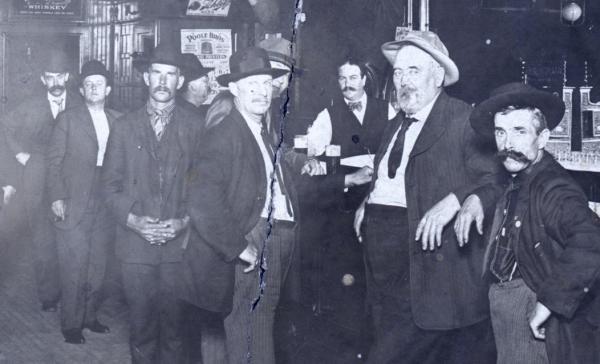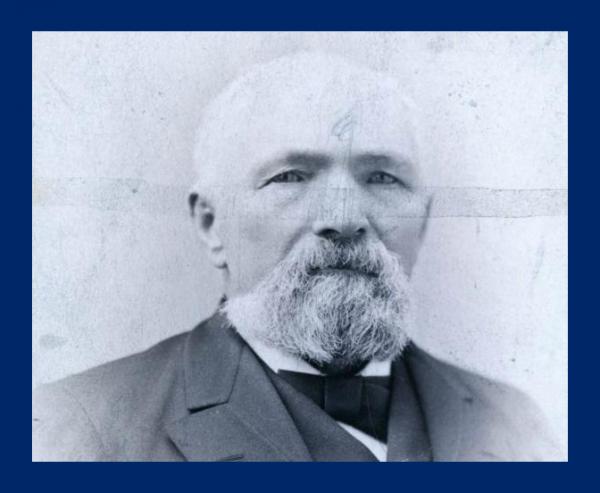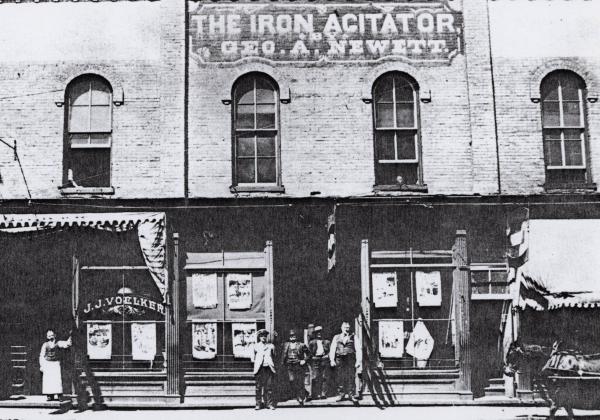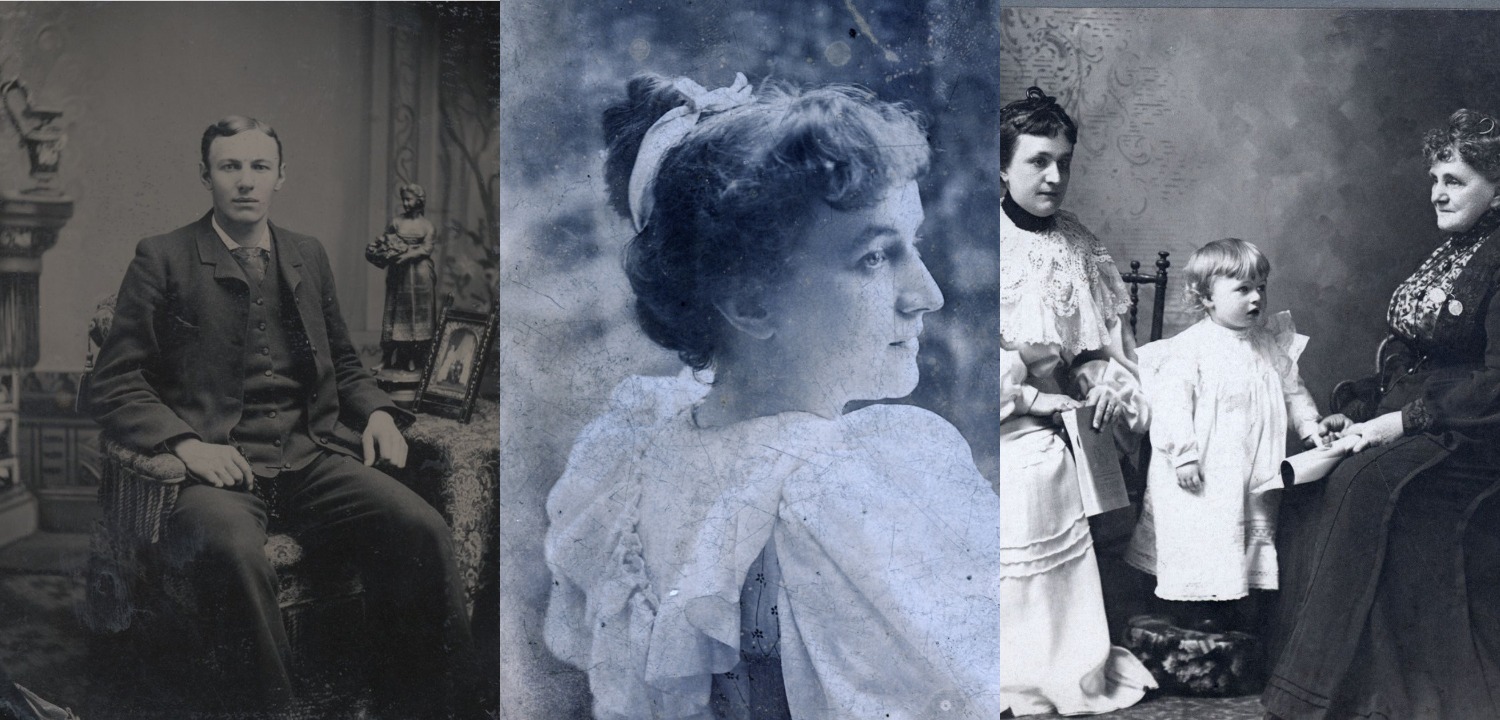Voelker Family
Nickolas Voelker left his birthplace of Effelder, Prussia (now Germany), in 1845 and came direct to Copper Harbor in the Upper Peninsula of Michigan. Though his motive for emigration is not known, like for many, it was probably the prosperous mining opportunities found in the Upper Peninsula, which was sporadically his line of work. After working for a time in the mines, he married his wife Catherine (also a native of Prussia) and brought her back to Copper Harbor. When he and his wife arrived several notable ‘firsts’ were attributed to them though it is not certain if they are true. Catherine Voelker, according to her obituary, was the first white woman to make her home in that part of the Peninsula. Catherine and Nickolas had three sons and two daughters. Nickolas was attributed as being one of the first Germans to begin brewing in the U.P.
After working in the mines, being county alderman, and running a hotel and meat market in Eagle Harbor, the Voelker family moved. Their next destination was Sault Ste. Marie where Nickolas operated another meat market as well as a brewery, which would become the line of business for which he was best known. After moving from Eagle River to Sault Ste. Marie, Nickolas and Catherine had boarders. Two of these men were German immigrants who opened a brewery with Nickolas, the value of which ended up being $1,000. On August 18, 1852, Nickolas Voelker became a citizen of the United States of America. The family moved again in 1857 to Ontonagon where they operated a butchery and Nickolas opened his first brewery. They also ran a boarding house, even hosting Bishop Baraga at one time. In the mid-1860s another move was made, this time to Negaunee. In 1869, Nickolas and a Mr. Etty started the Peninsula Brewing Company on Gold Street in Negaunee and sold it a year later to George C. Sheldon. As in his other towns of residence, he also operated a butcher shop. In 1869, the family moved to Ishpeming. From 1871 to 1873, the Voelkers relocated to Salt Lake City, Utah, where Nickolas could work in the mines. After that, they returned to Ishpeming where they opened a wholesale beer operation on what was known as “Voelker Block,” where they also lived in the second story of one of the buildings. Nickolas Voelker died in 1891 due to Bright’s disease and Catherine Voelker died in 1905 of peritonitis.
George Voelker's Tavern in Ishpeming
(Left) George Voelker (Middle) George’s second wife, Annie Traver (Right) Annie Traver Voelker (L), son John Voelker, & John’s Grandmother (R)
George Voelker, second son of Nickolas and Catherine Voelker, was born on July 20, 1860. In 1884, George married Mary Mockler and the pair had three sons, George Jr., Leo, and Joseph. Mary Mockler died in 1892. George and his sons lived in the hometown of Ishpeming and he ran a mercantile and a tavern, in addition to having rental properties and investments in mining and spirits. After meeting the new music teacher for the Ishpeming Schools, Annie Traver, she and George were married on June 24, 1895. George and his second wife had three sons, Robert, Paul, and John D. Annie made George promise that he would give up operating the tavern to protect her respectable reputation as a teacher, which he did for a time. When he returned to operating a saloon not long after, his tavern was famous for having the longest bar with the most stools in the Upper Peninsula. It was from his father that John D. Voelker inherited his love for fly-fishing. After the death of his father, John D. Voelker and his siblings inherited the business operations of their father and grandfather as well as the rental buildings of Voelker block and the family farm, which was situated on swampy farmland.
John Voelker’s writing career and some of his stories were highly influenced by his family and their stories. His mother always encouraged his writing and he wrote his first story, "Lost in a Swamp All Night with a Bear," at age twelve. His pen name, Robert Traver, is a combination of two family names. Robert is the name of his older brother who was in the Navy in Brazil in World War I. Robert died of pneumonia and pleurisy four months after returning. Traver was the maiden name of his mother, Annie. Elements of his life and the lives of members of his family made it into some of his works (with alteration), such as in "Trouble-shooter: The Story of a Northwood’s Prosecutor" and other short stories. In 1958, Voelker’s life changed when his novel, Anatomy of a Murder, became a New York Times bestseller and was made into a feature film the following year.
Images courtesy of the Central Upper Peninsula and NMU Archives.



